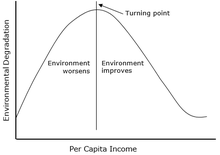Research investigating water inequality within the context of sustainable development suggests new approaches to help policymakers achieve water security for all.
Access to water and sanitation are recognized by the United Nations as human rights. Lack of access to safe, sufficient and affordable water, sanitation and hygiene facilities has a devastating effect on the health, dignity and prosperity of billions of people, and has significant consequences for the realization of other human rights.
A transatlantic team of researchers – led by Cardiff University, the University of Birmingham, North Carolina and Northwestern universities – studied inequality in the context of household water security. Their results are published in Nature Communications.
Professors David Hannah and Stefan Krause from the University of Birmingham were part of the team. Water security requires availability of and access to clean and sufficient water. A major knowledge gap remains in understanding water security inequality and its dynamics within and across populations.

To begin addressing this issue, the team looked at the ‘Kuznets Curve’. For decades income and societal inequality have been described by a method called the Kuznets curve, which hypothesises that as an economy develops, market forces first increase and then decrease economic inequality (i.e. inverted “U” shaped curve).
The researchers have suggested that this same relationship can be used to analyse the inequality in global household water security.
By analysing household survey data from 7,603 households in 28 sites in 22 low- and middle-income countries the team discovered that the inequality of household water security follows a Kuznets-like curve, suggesting that as water security grows, the inequality of water security first increases then decreases.
 What is curious about this is the inequality of water security has no such relationship with socioeconomic variables. It implies that non-economic factors, such as sustainable development levels, are sometimes more powerful than economic factors in indicating or changing the distribution of resources and services. Built upon this discovery, the team proposes the concept of the ‘Development Kuznets Curve’ to describe water inequality in the sustainable development context.
What is curious about this is the inequality of water security has no such relationship with socioeconomic variables. It implies that non-economic factors, such as sustainable development levels, are sometimes more powerful than economic factors in indicating or changing the distribution of resources and services. Built upon this discovery, the team proposes the concept of the ‘Development Kuznets Curve’ to describe water inequality in the sustainable development context.
“This research extends the conventional Kuznets Curve concept and encourages a more general rethink of development beyond economic terms,” said lead author of the research Dr Feng Mao from Cardiff University.
David Hannah, Professor of Hydrology and UNESCO Chair in Water Science, said: “This important research has practical implications for understanding and taking action on water security to achieve fairer, more inclusive and sustainable development of water for all.”
The study does not suggest that an increase in inequality is inevitable, nor does it imply the inequality problems would disappear effortlessly as a society continues to improve water security.
Instead, the study provides evidence for policymakers and urges them to fully consider inequality challenges on the way to realising sustainability (e.g., ensuring water interventions do not further exacerbate inequalities and avoid disparities in access and use when expanding water supply networks). The Development Kuznets Curve concept offers a new angle for policy makers to better design sustainable development practices and pathways.
“Understanding the mechanisms underlying the global inequalities in water security will help developing efficient strategies for household water security solutions,” said Stefan Krause, Professor of Ecohydrology and Biogeochemistry at the University of Birmingham.
Follow-up studies will further research the Development Kuznets Curve and try to reveal the causal mechanisms underlying the new pattern.



